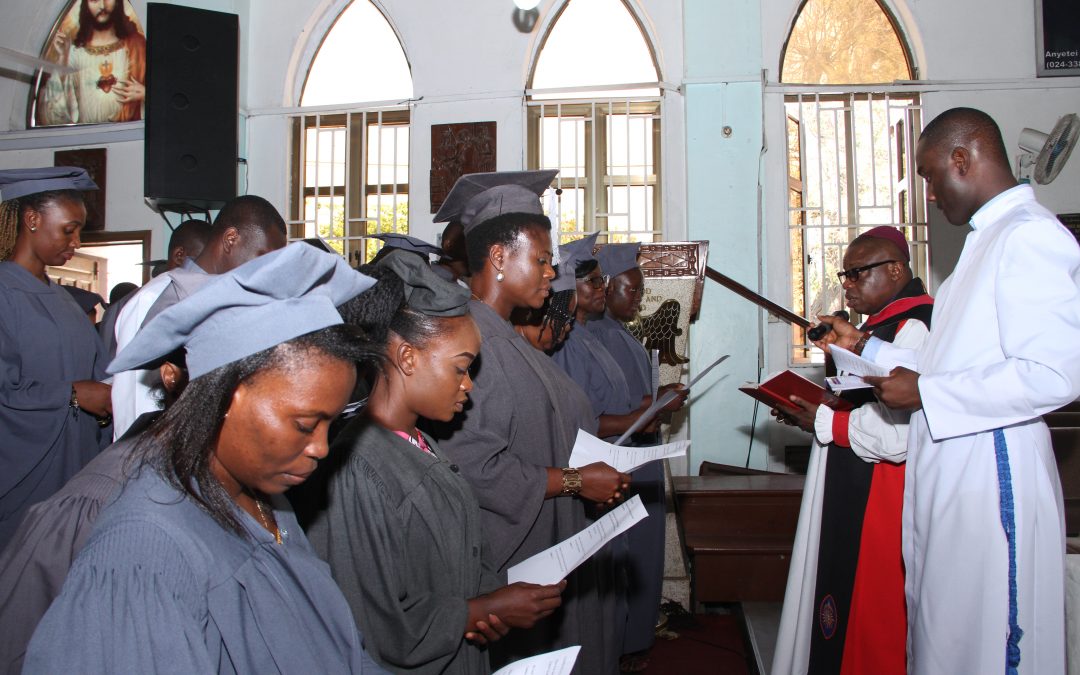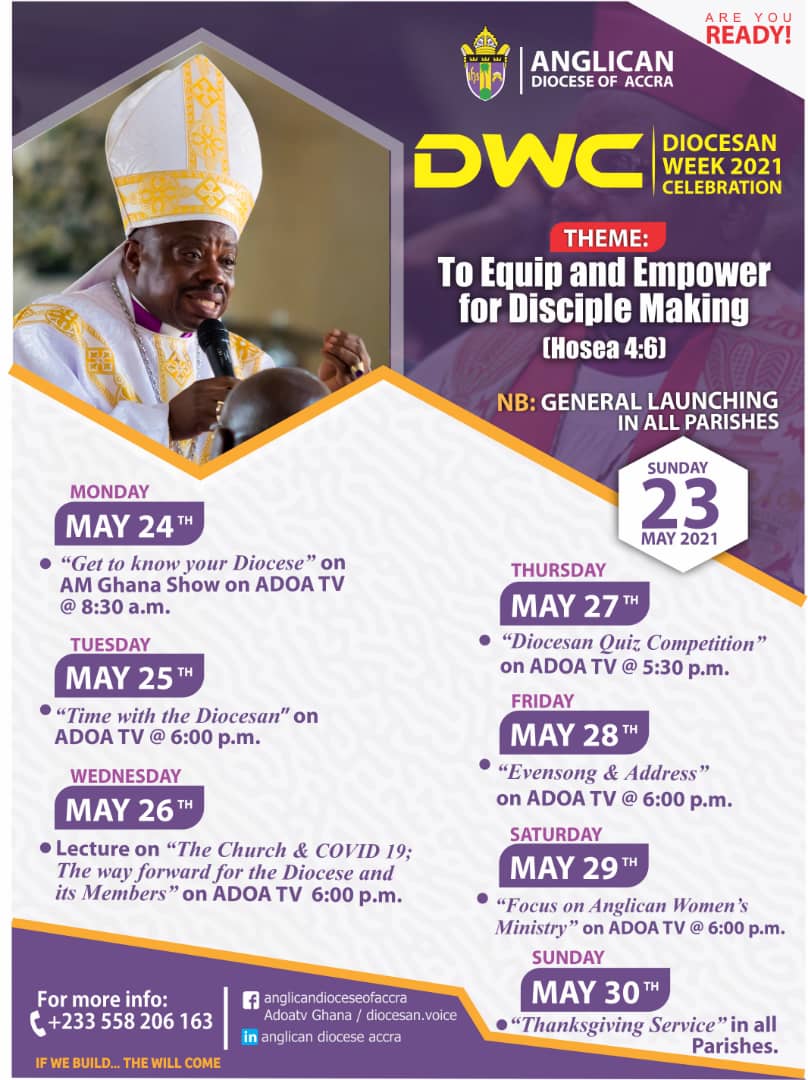Evangelism and Discipleship
When we sense the Christian atmosphere now, what we smell around us is discipleship and evangelism. The craving for the maturity of the individual Christian is on the ascendency and we as a church should not blind us to call for evangelism and disciple-making. As a church we must recapture our lost values and stick our neck out as an evangelism and disciple-making. Let me expatiate of what we expect all the faithful to do.
Disciple-making
Evangelism, discipleship, and disciple-making are all important terms for us to understand both in their meaning and in their relationship with one another.
Disciple-making means the totality of the process from making initial contact with a person who has no knowledge of the gospel, to the steps that lead to hearing the gospel, then from hearing the gospel to responding to the gospel.
The disciple-making process goes on to include Christian growth until ultimately the person becomes a multiplying disciple-maker himself or herself. The way we use the terms now we would say, “In our modern formulation, evangelism is the process leading up to conversion and discipleship means the process from conversion and beyond
Sharing the Gospel
When I first came to Christ, a leader there said we should go home and tell somebody about Jesus. He actually said the first thing we should do is to go tell somebody about Jesus. Because I didn’t know any better, I did just that. I went home and told a member of my family, because I thought people really did that.
I said to him, “Are you saved?” using the language that the person used with me. He asked, “Saved from what?” And I said, “I don’t know but you need to be, I just was.”
Here’s the problem: I did not hear that connection much following that experience. For years, I heard people talk about how to come to Christ, but did not see it followed by and connected to sharing the gospel. My evangelism was separated from discipleship, rather than connected as disciplemaking.
Evangelism and Discipleship
Later on, it seemed like the way to Christian maturity was to read five books, but in these books witnessing was finally mentioned at the end of at all, and mission was never mentioned.
If we are going to use the term discipleship to talk about helping believers mature, our focus has to be more mission-driven and evangelistically-focused. Our evangelism has to be focused on making disciples who become disciple-makers, and our discipleship has to be mission-driven, leading those discipled to share Christ.
Both of these concepts can be understood in the overarching idea of disciple-making, which is what Jesus told us to do in Matthew 28:19-20.
Reproducing Reproducers
While no disciple is perfect, every disciple should be maturing in Christ. Dawson Trotman, founder of the Navigators and the man who developed the follow-up ministry for the Billy Graham Evangelistic Association, once said, “A person is mature physiologically when he or she can reproduce physically; so too, a person is mature spiritually when he or she can reproduce spiritually.” The growing, maturing Christian is one who is committed to lead another to Christ and nurture that new convert until this person can also lead others to Christ and nurture them to be reproducers of reproducers. This is the way in which all evangelism is couched in discipleship. Disciples evangelize in order to disciple.
This is not a self-serving process. The goal of discipleship is to bring people into an ever maturing relationship with Jesus Christ. Those who are with Christ will get to know and love him; they will also come to love what he loves: “God so loved the world that he gave his only begotten Son that whosoever believes in him shall not perish but have everlasting life” (John 3:16). True disciples want others to come to know him and love him as well. True disciples will be evangelistically fruitful.
Paul’s Conversion
If we piece together the accounts of Paul’s conversion (Acts 9:1-9; 22:6-11; 26:1-29), we find that Paul asked two noteworthy questions of Christ: “Who are you, Lord?” and “What would you have me do?” These are the questions every new convert and every disciple must ask continually.
I believe the numerical decline of the Anglican Church of Ghana is the work of God. It is the pruning work of the Master Vinedresser to discipline and refine us. He is removing the fence on which many Anglicans have sat too long and comfortably. There can no longer be a limping between two dominions: either Jesus is Lord and God, or He is not. It is God’s merciful action to displace our church from her improper place of cultural power, societal clout, and generational wealth and ease.
As a church, we must embrace again our God-given identity as exiles and sojourners in this world. We must never feel at home here, for our home has not returned from above. Until then, we must prepare ourselves and the whole realm of humanity to be tabernacles of God’s Holy Spirit. This means we must labour for the conversion of people unto the Lord Christ wherever the church exists, wherever Anglicans are present, beginning inside our Parishes and Congregations. We must confront our sins, the sins of our society, and call people to turn from evil and to turn to the gracious lordship of Jesus.
We need to recapture and embody our lost and forgotten Anglican virtue of mission and evangelism.


